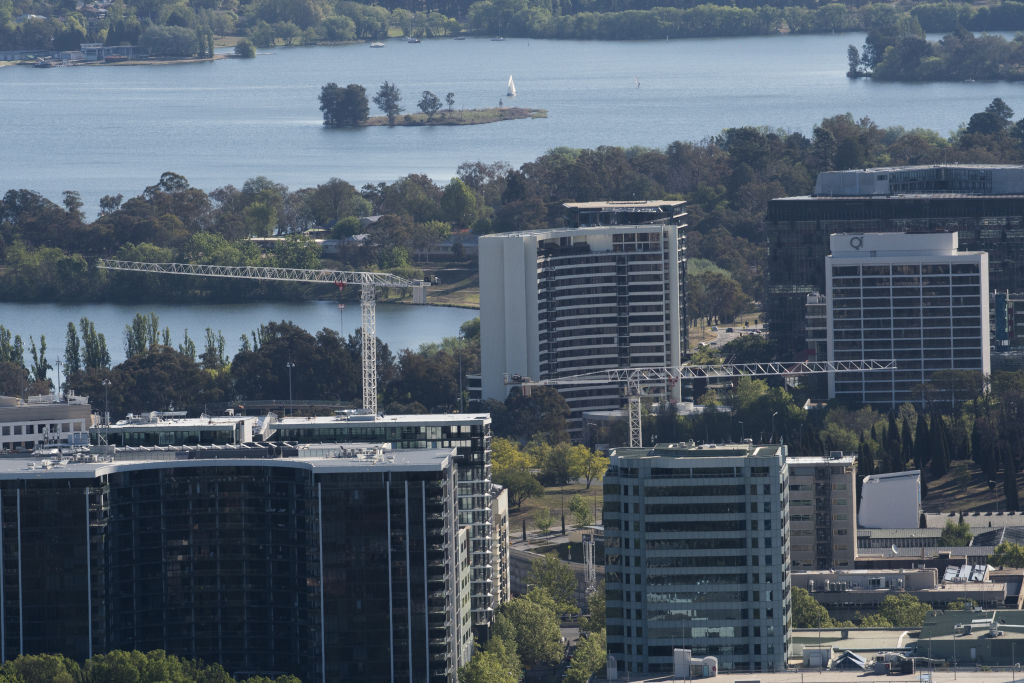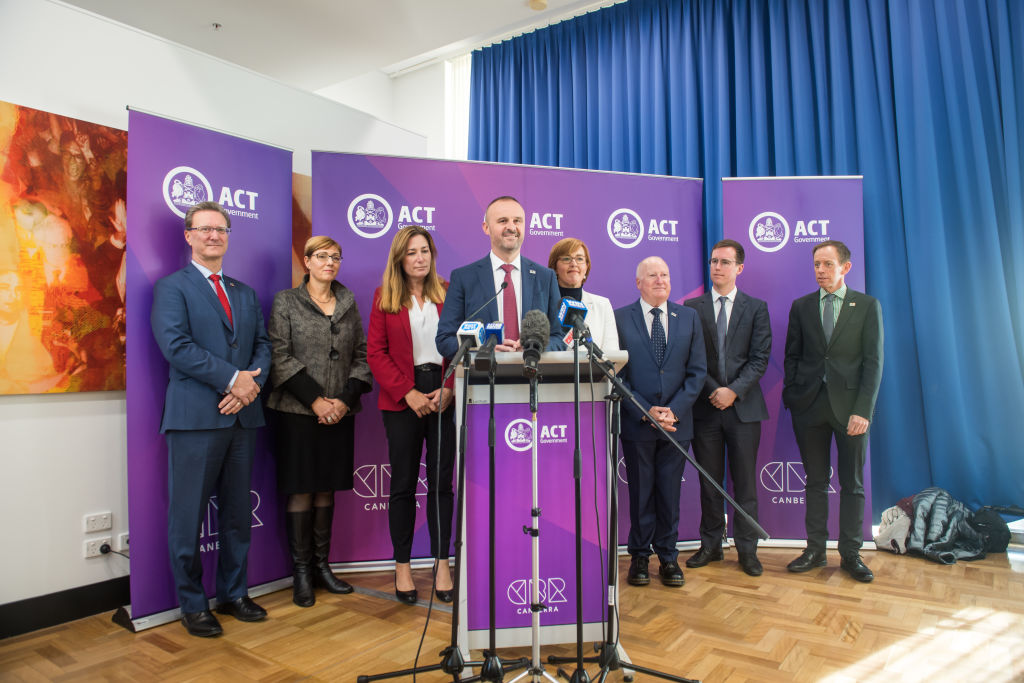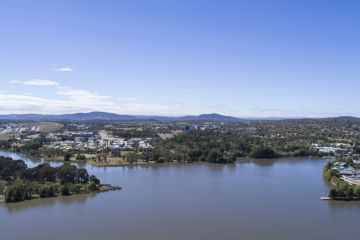ACT budget 2019: Property industry slams increased building fees

Canberra’s property industry had a mixed reaction to the ACT budget, released on Tuesday, with the building industry concerned about increased fees.
Among the major announcements for property from the budget yesterday was a change in how rates are calculated for houses and units, a greater crackdown on building quality, further stamp duty declines and a land release that slated 15,600 dwellings over the next four years.
Master Builders ACT chief executive Michael Hopkins said a long-term infrastructure vision was missing from the budget, and he would like to see more collaboration with the private sector to deliver housing.
“The four-year indicative land release forecasts an 8 per cent reduction in the release of new land from 17,000 announced last year to 15,600 forecast for 2019-20,” he said.
“The announcement comes after the budget reveals the Suburban Land Agency fell short of its budgeted dividend by $40.2 million.
“To better address the changing needs of the local housing market, the MBA would like to see government make more englobo land sales or enter more JV partnerships so that the responsiveness and innovation of the private sector can be optimised.”

Mr Hopkins welcomed the initiatives to improve building quality but criticised the fact it would be funded by the building industry.
The ACT government will increase building regulator resources by employing an additional 16 Access Canberra staff to undertake monitoring and compliance activity.
Costs will be covered by a $350 increase in the building licence fee and a 0.1 per cent increase to the building levy.
More staff will also be employed to fast-track the process of development applications, this will be subsidised by a rise in the development application fee.
Housing Industry Association executive director Greg Weller was also not happy that industry would fund the changes, and said the extra costs would be passed along to home buyers.
“The housing industry is broadly supportive of the additional staff to support building compliance, licensing and to address the chronic delays in the ACT’s development approval system, but the reality is that home buyers will pay for it through increases in the building levy and development application fees,” he said.
“It is disappointing that these services are being funded through new levies and charges that will ultimately be passed on to the public when they build a new home.”
- Related: How does the result of the federal election affect Canberra’s housing market?
- Related: The influence of new developments on the Canberra property market
- Related: Six projects chosen for ACT Demonstration Housing Project
Less than half of all development applications were completed in the statutory timeframe over this financial year and Mr Weller said the industry was right to have concerns.
“The budget papers show that only 39 per cent of development application decisions were made within the statutory timeframe during 2018-19, so the industry and community as entitled to ask what level of service will be guaranteed with these extra staff and extra costs,” he said.
The budget showed general rates for houses would increase by 7 per cent over 2019-20 and units would increase by 11 per cent.
Stamp duty payable for a home priced $750,000 will be $1300 less next financial year.
But Property Council ACT executive director Adina Cirson noted stamp duty receipts had increased over the five years since the territory’s 20-year stamp duty reforms came into play, while revenue from rates had doubled.
In his address to the legislative assembly, Chief Minister Andrew Barr said the “heaviest lifting” had already been done.
“We understand that some households are feeling the impact of this tax reform through their rates bills, which is why I want to reassure Canberrans that the heaviest lifting of this reform has been achieved,” he said.
“Over these forward estimates, the rate of growth in rates will slow as we move towards the next five-year phase of the tax reform program.”
The government also committed to making improvements to land tax and lease variation, which Ms Cirson welcomed.
“This should go some way to addressing the steep increases in commercial rats which have been experienced as part of the ACT’s land tax reform program,” she added.
About 49 per cent of revenue from the ACT government came from property-related taxes in 2018-19, the budget showed.
States
Capital Cities
Capital Cities - Rentals
Popular Areas
Allhomes
More







